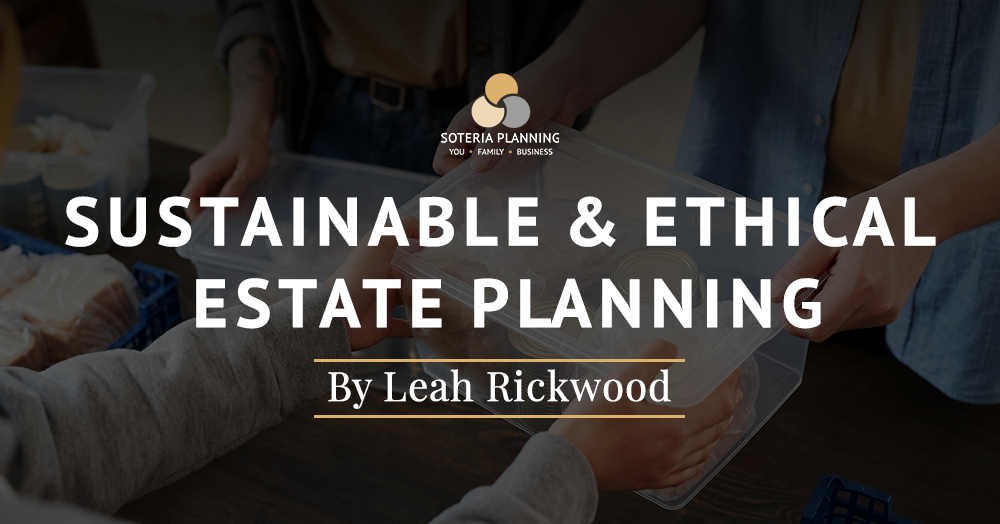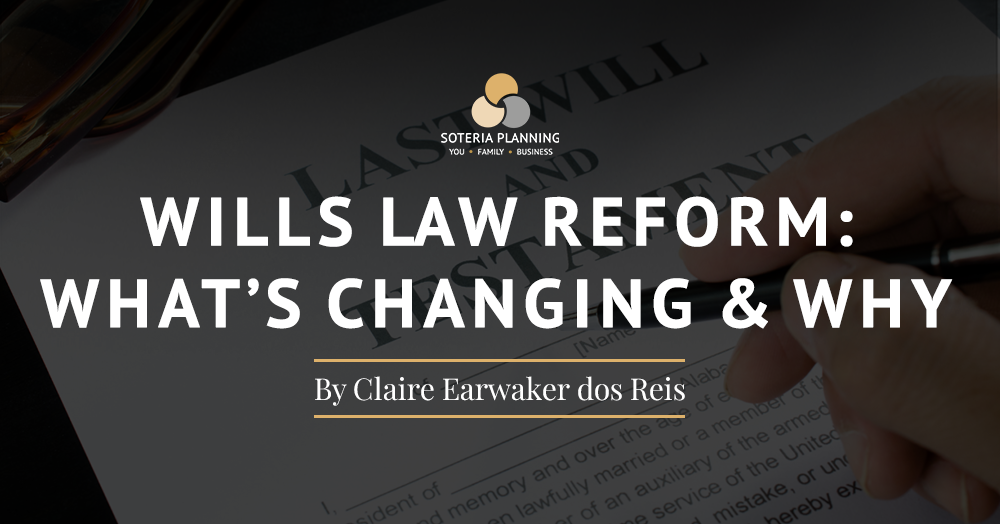In today's environmentally conscious and socially aware world, many are seeking ways to ensure their legacy has a lasting, positive impact on society and the planet. At Soteria Planning, we understand that ethical and sustainable estate planning is not just about distributing assets but about making a meaningful contribution to the causes close to your heart. This blog explores how to incorporate charitable giving within your estate plans and the setting up of trusts that benefit social causes, helping you create a legacy that aligns with your values.
The Power of Charitable Giving in Estate Planning
Charitable giving can be a cornerstone of ethical estate planning. It not only provides significant tax advantages but also ensures that your wealth supports the causes and organisations that matter most to you. Here are a few ways to incorporate charitable giving into your estate plan:
Bequests in Wills: You can specify in your will that a portion of your estate goes to a charity or charities of your choice. This can be a fixed amount, a percentage of your estate, or specific assets.
Conditional Bequests: If you have specific conditions you wish to be met, these can be outlined in your will. For example, the funds might be used for a specific project or purpose within the charity.
Gift of Stocks or Bonds: Donating stocks, bonds, or other securities can be a tax-efficient way to contribute to charity, as it may allow you to avoid capital gains tax that would otherwise arise from selling the securities.
Establishing Trusts for Social Causes
Setting up a trust can be an effective way to ensure long-term support for social causes while providing financial benefits to your beneficiaries. Trusts can be tailored to support charitable activities in several ways:
Charitable Remainder Trusts (CRTs): These allow you to receive income (or provide income to another person) for life or a specified term of years, after which the remainder of the trust assets goes to designated charities.
Charitable Lead Trusts (CLTs): Opposite to CRTs, these trusts provide a fixed amount to a charity for a number of years, after which the remainder of the trust assets passes to your beneficiaries, potentially reducing or eliminating inheritance taxes.
Foundation Trusts: For those with larger estates, setting up a private foundation can be a way to contribute to charitable causes while involving family members in philanthropy, thus instilling charitable values across generations.
Benefits of Ethical Estate Planning
Engaging in sustainable and ethical estate planning not only benefits the charities and causes you support but can also offer substantial tax benefits. Donations to charity are often deductible from the value of the estate before inheritance tax is calculated, which can significantly reduce the tax payable.
Moreover, ethical estate planning can be a deeply fulfilling way to leave a legacy. Knowing that your estate will continue to benefit society can provide immense peace of mind and satisfaction.
Conclusion
At Soteria Planning, we are committed to helping you align your estate planning with your ethical and sustainable values. By incorporating charitable giving and setting up trusts for social causes, you can ensure that your legacy makes a lasting impact. If you are interested in exploring how you can incorporate these elements into your estate planning, please contact us or book a meeting with one of our advisors. Our dedicated team is here to provide tailored advice and support to help you achieve a legacy that truly reflects your values and aspirations.



Share this with
Email
Facebook
Messenger
Twitter
Pinterest
LinkedIn
Copy this link